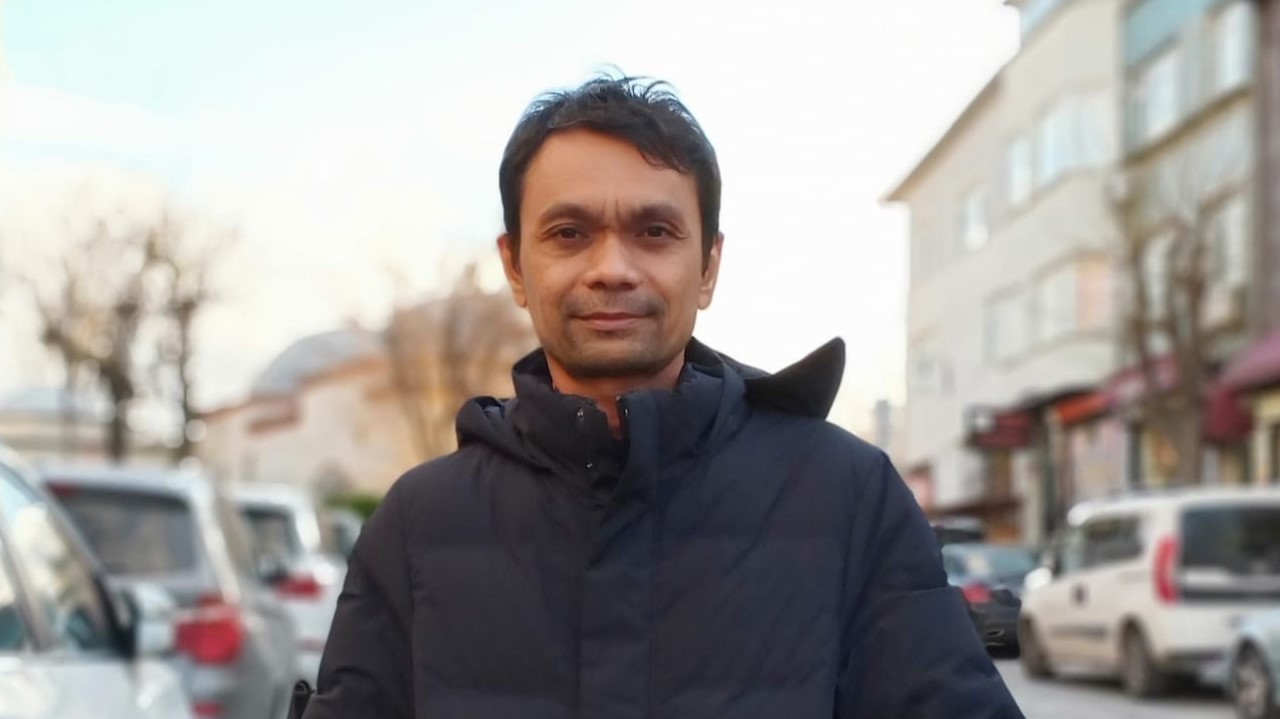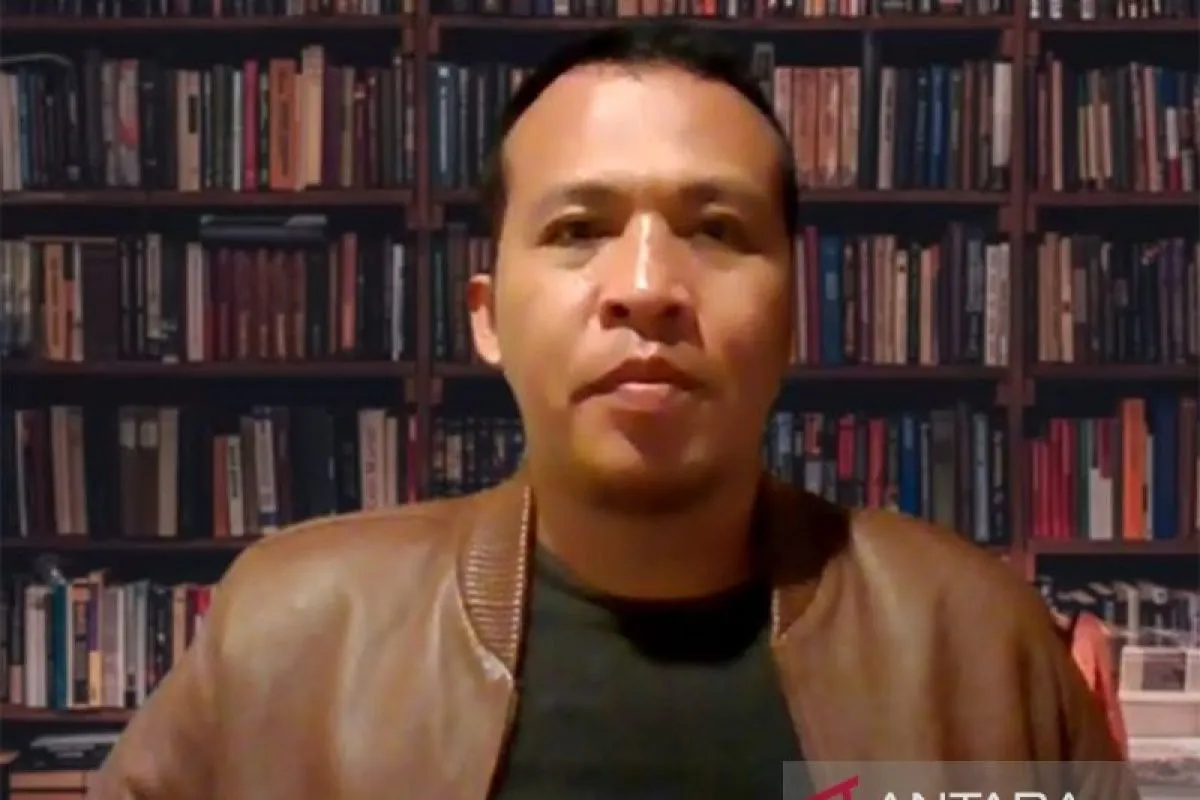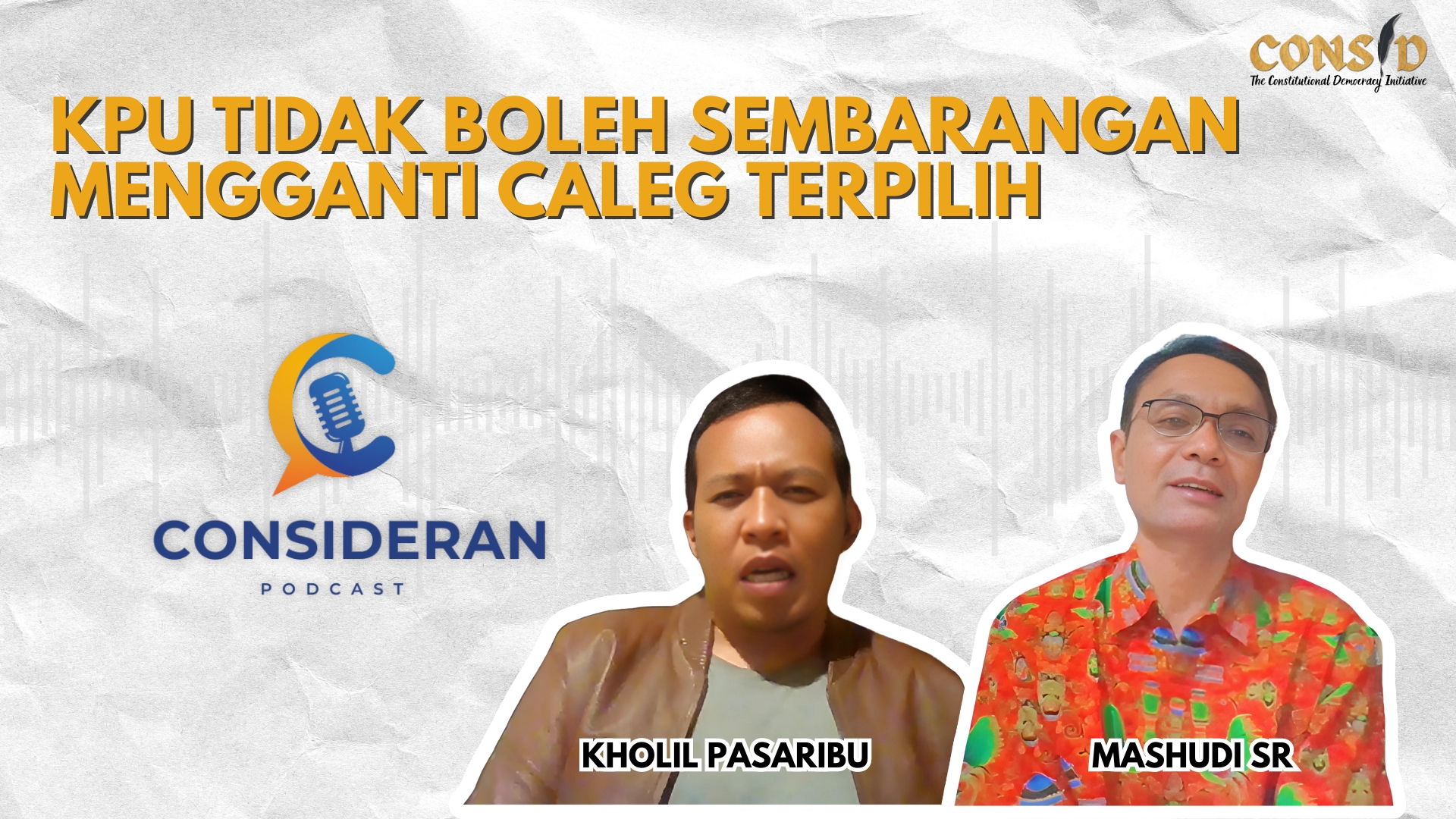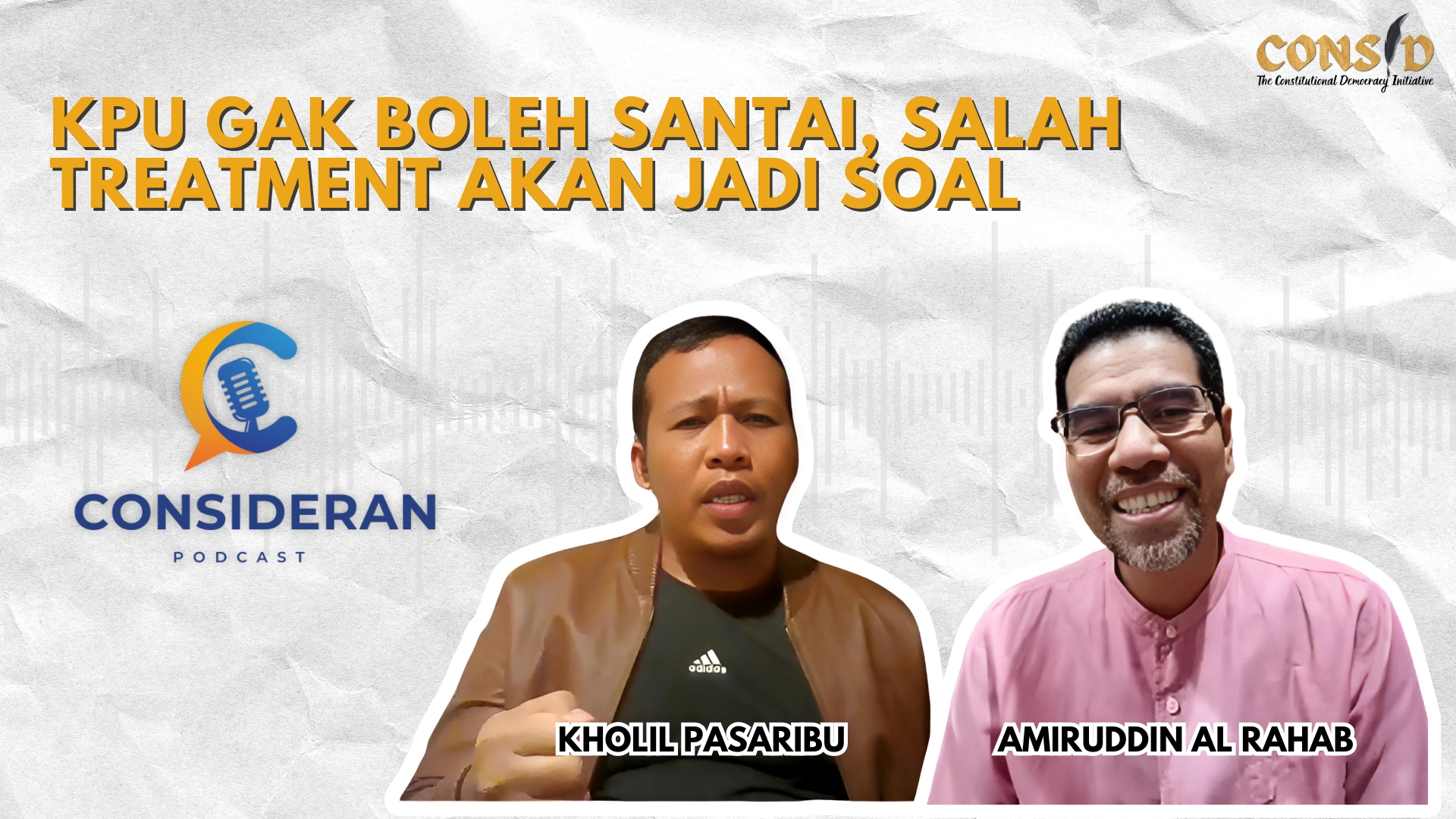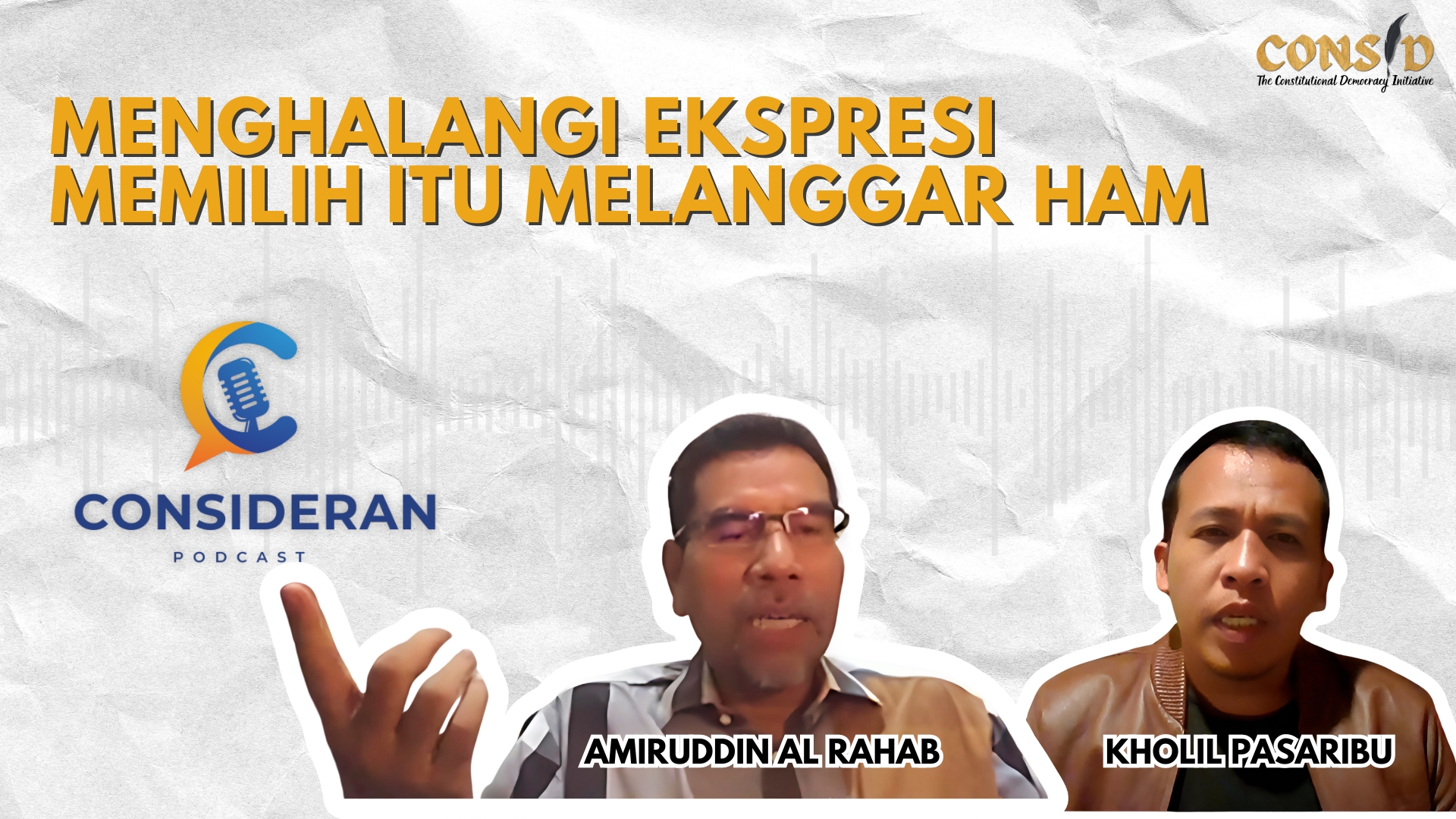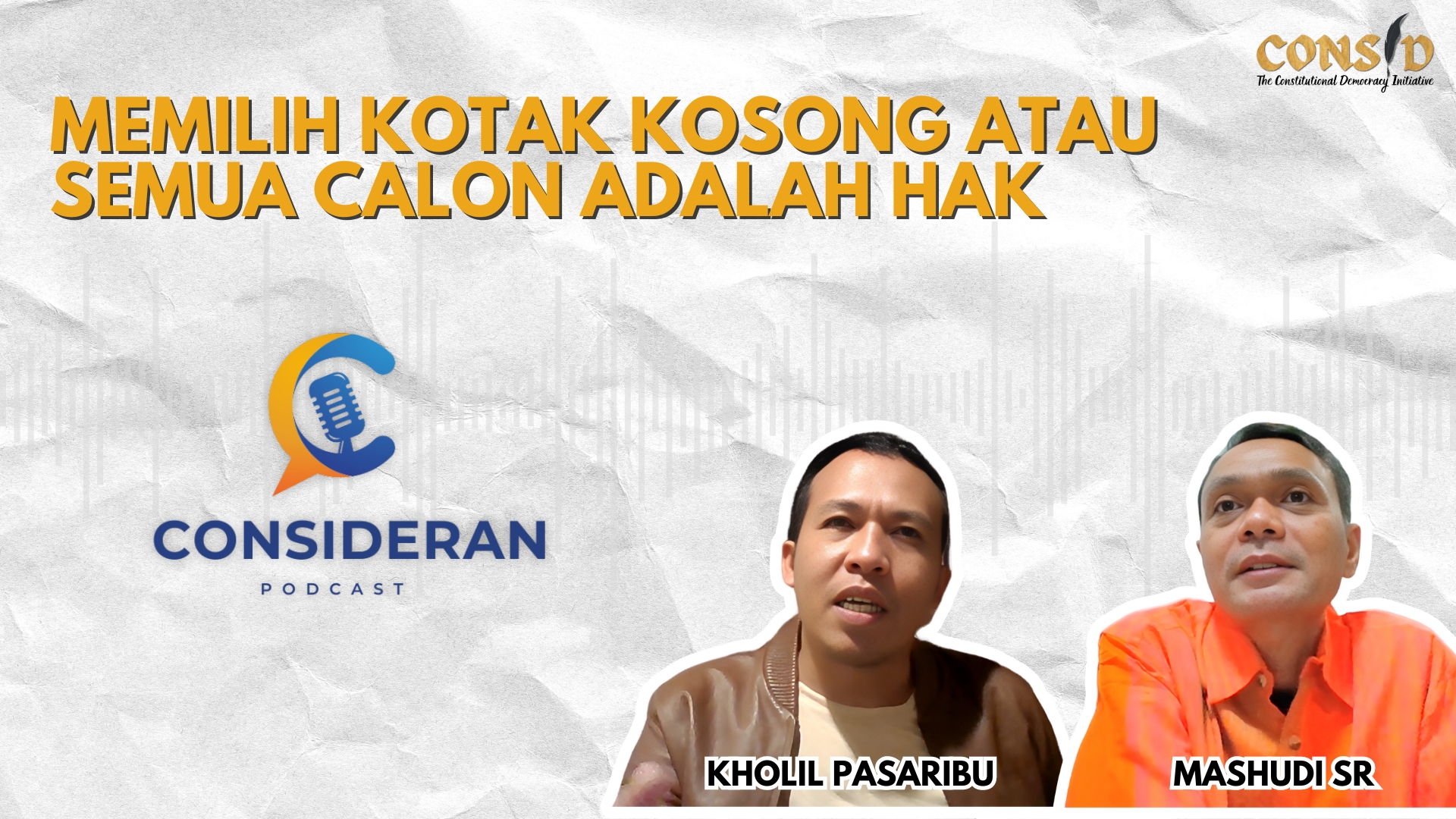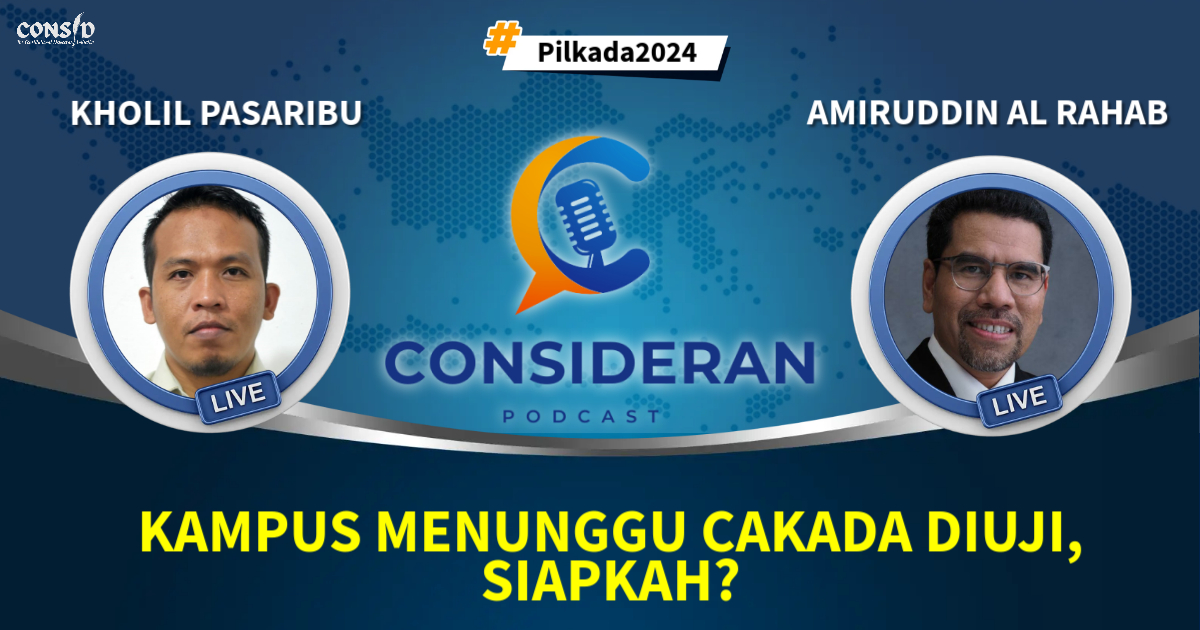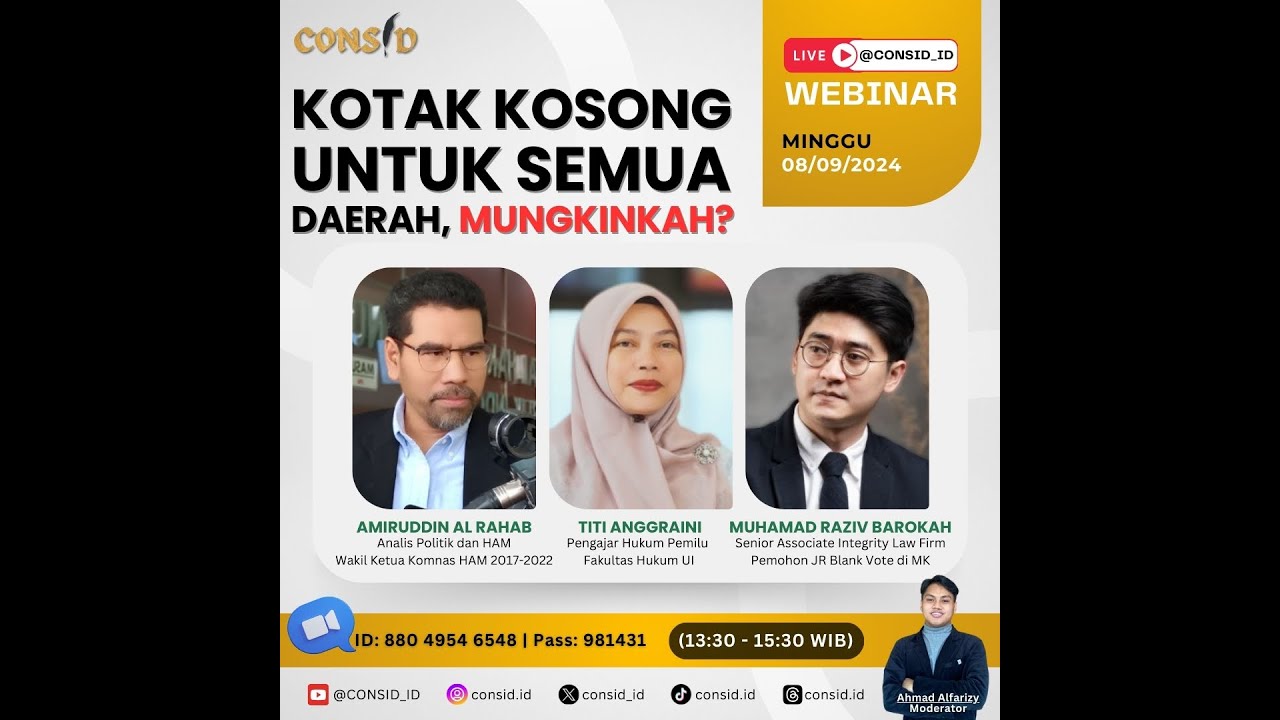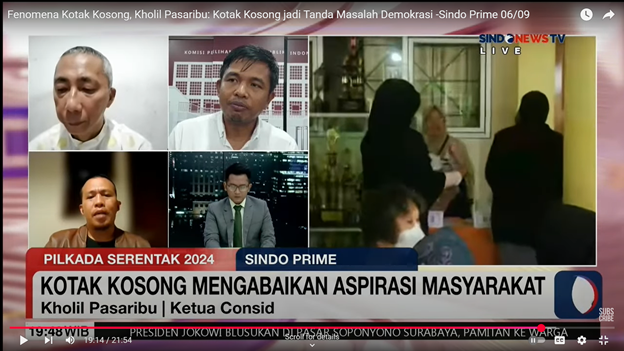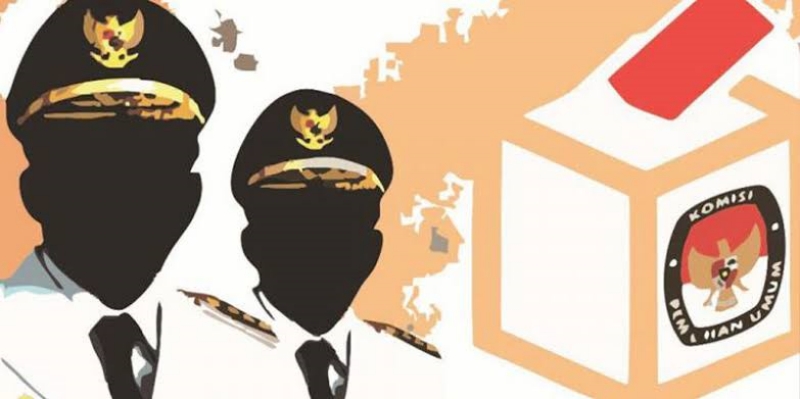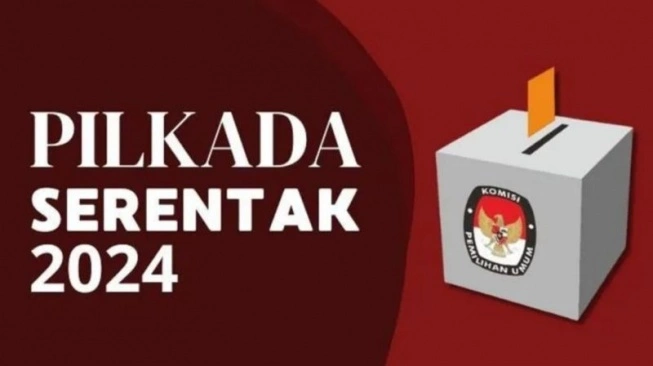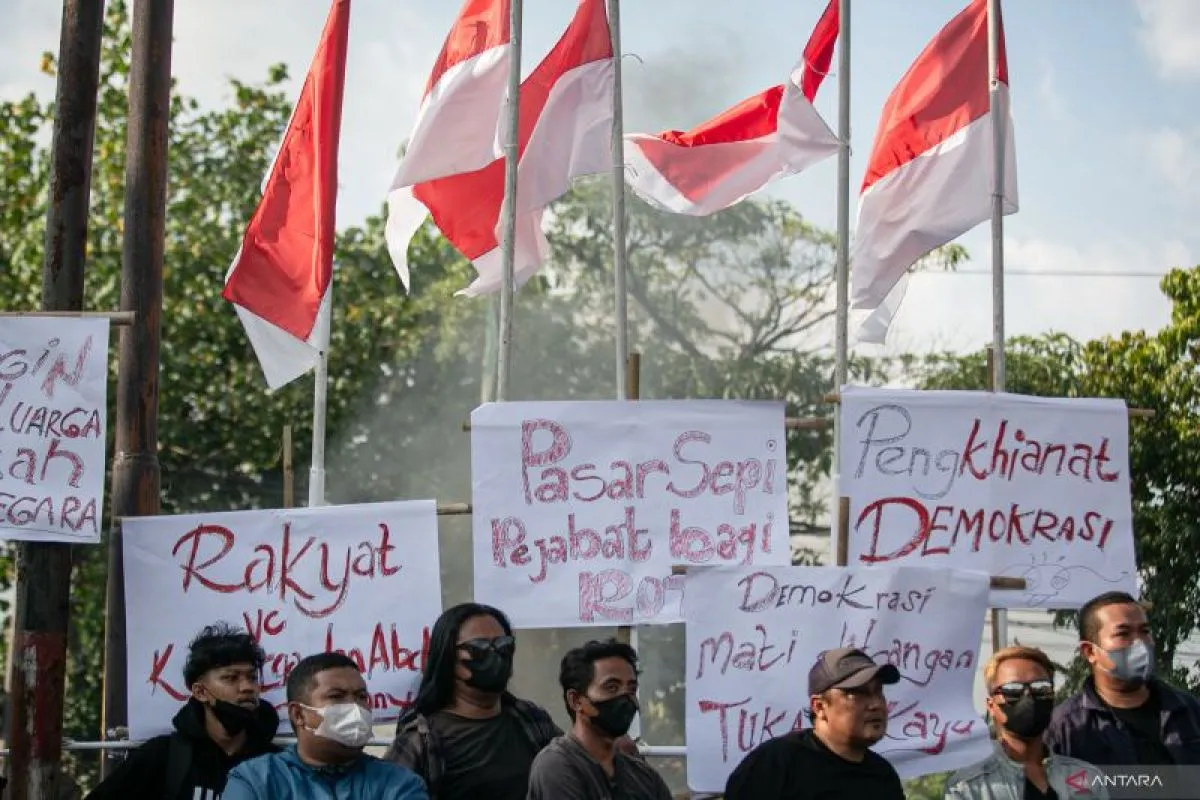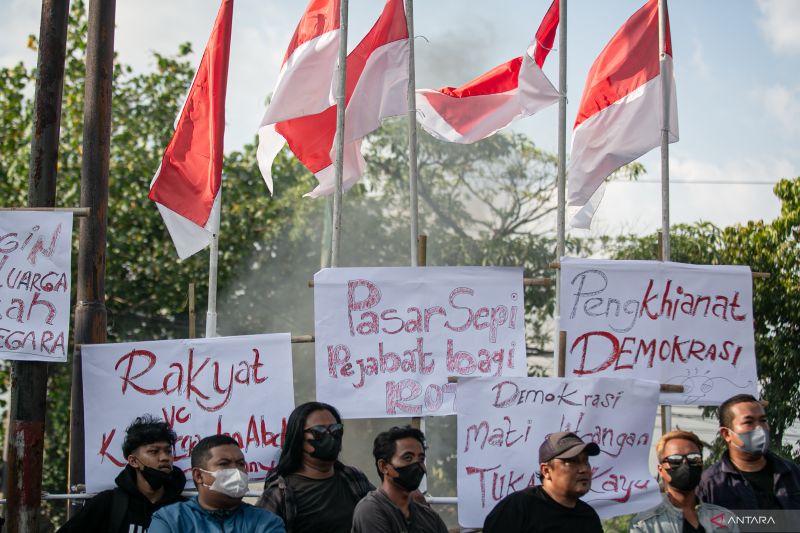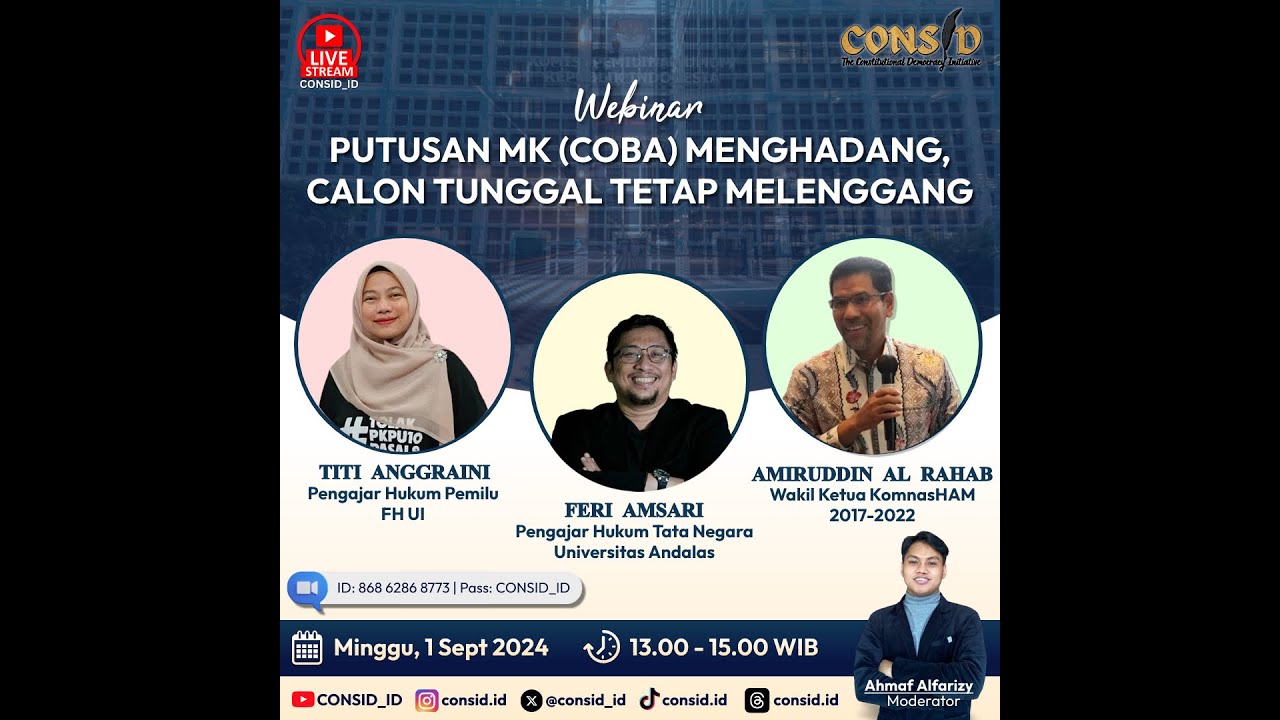
The prevalence of single-candidate contests in the 2024 local elections appears to be the preferred political strategy of many political parties, particularly in several major provinces. This trend has become increasingly evident through the political alignment among parties affiliated with the Koalisi Indonesia Maju (KIM), the coalition that supported the Prabowo–Gibran ticket in the recent presidential election, now continuing their cooperation in the local electoral arena.
There is, in principle, nothing inherently wrong with the intention of KIM to maintain their alliance. However, when this leads to the deliberate engineering of an election featuring only a single pair of candidates, it reflects an unhealthy political practice, and reveals early signs of majority tyranny. Party elites seem no longer concerned with whether such tactics are rational or beneficial to the quality of our democracy.
Alarmingly, political parties outside of KIM have also begun signalling a willingness to join this so-called grand coalition. Many have expressed support for the same candidate pairs backed by KIM, resulting in a high likelihood of uncontested races in various regions.
In reality, as institutions meant to foster political leadership, every political party should be nurturing its best cadres to assume key positions such as regional head. Yet political pragmatism has overwhelmingly dictated how elite-level decisions are made.
This behaviour demonstrates at least four major problems: first, A blatant disregard for public aspirations, particularly the people's desire for a meaningful choice of candidates. By monopolising the nomination process, party elites effectively rob voters of their constitutional right to select the best leaders available to them for the next five years.
Second, the orchestration of single-candidate elections undermines the very nature of democratic competition, which requires equal and fair contestation between candidates. A local election with no competition is nothing more than a theatrical exercise cloaked in the formalities of democracy.
Third, political parties are steadily losing their intellectual independence and institutional integrity. Instead of functioning as incubators of future leaders, they are abandoning their core purpose.
Fourth, in the long term, the submissiveness of party elites, motivated by the desire for political rewards, will erode the very foundation and future of our democratic system.
If the main justification for single-candidate elections is the high nomination threshold (20% of seats or 25% of valid votes from the previous legislative election), this is a challenge that can be addressed. Political parties could amend the Local Elections Law to revise these thresholds. Yet they refuse to do so—because, for many parties, it is far more advantageous to unite in coalitions, especially for those lacking viable candidates of their own.
Data shows that the number of single-candidate elections has risen steadily since 2015. The figures are as follows: 3 single-candidate in 2015 races; 9 single-candidate in 2017; 16 single-candidate in 2018; 25 single-candidate in 2020. Of the 53 single-candidate elections held since 2015, only one resulted in a loss for the candidate. This indicates an astonishing win rate of 98.11%, making it far more appealing to political parties than nominating even those candidates with electability ratings above 60%.
This political reality should not be normalised. On the contrary, it is an alarming signal that must be addressed. There is still time for political parties to reconsider and adopt a more democratic course, one that honours the people’s sovereignty. At the same time, the public can respond intelligently in regions where a single-candidate race is inevitable. The solution is not abstention or boycotting the ballot, but rather raising awareness among voters to go to the polling station and actively vote for the blank box (kotak kosong), an option provided in the ballot for such cases.
In the end, single-candidate elections represent the most insidious, yet legal, way to gradually silence healthy democracy. Simultaneously, they sow the seeds of autocracy. If left unchallenged, it is not impossible that authoritarianism masquerading as democracy will take root in the next five years.
Jakarta, August 11th 2024
Kholil Pasaribu
Chairperson, CONSID


